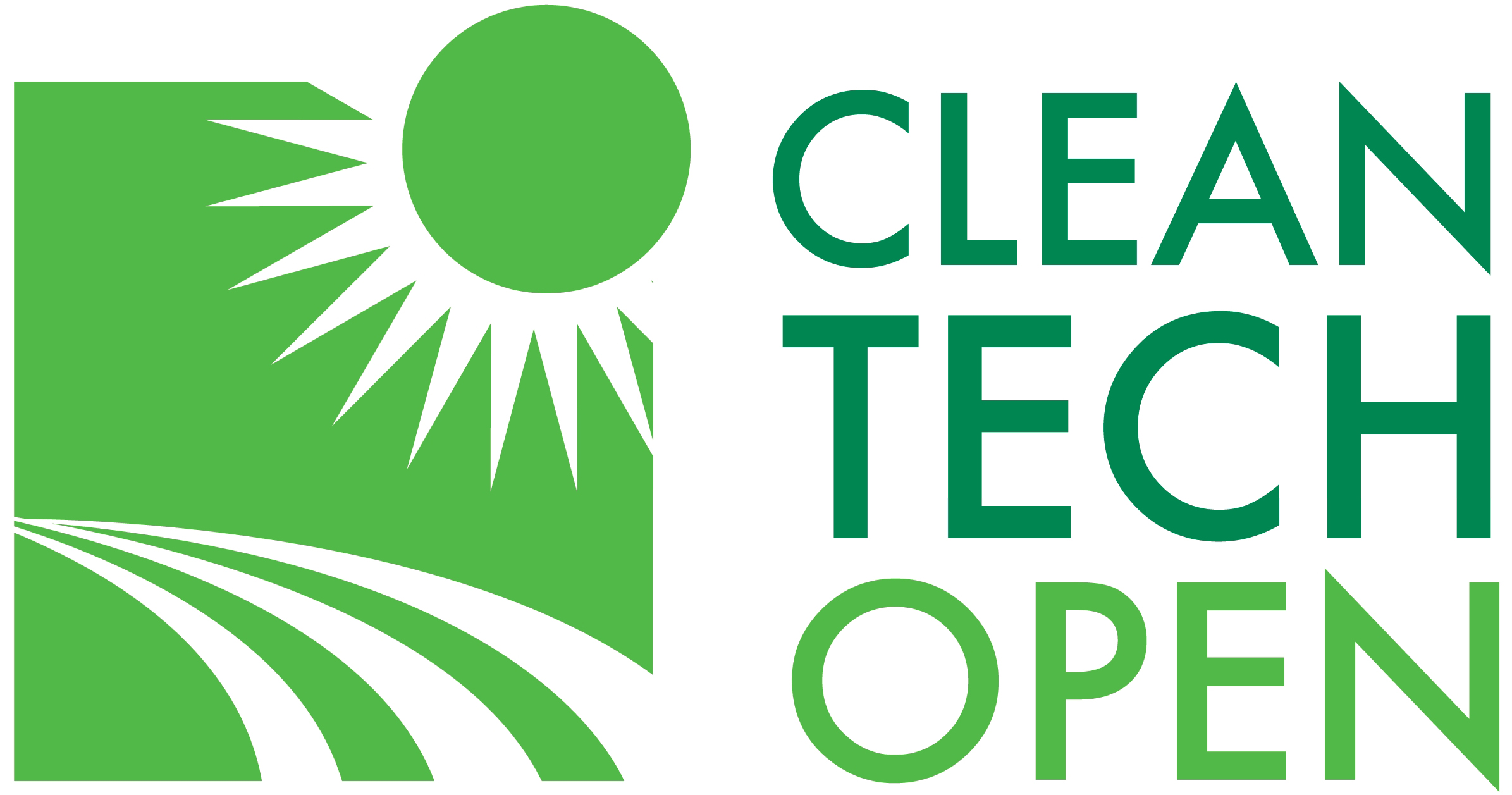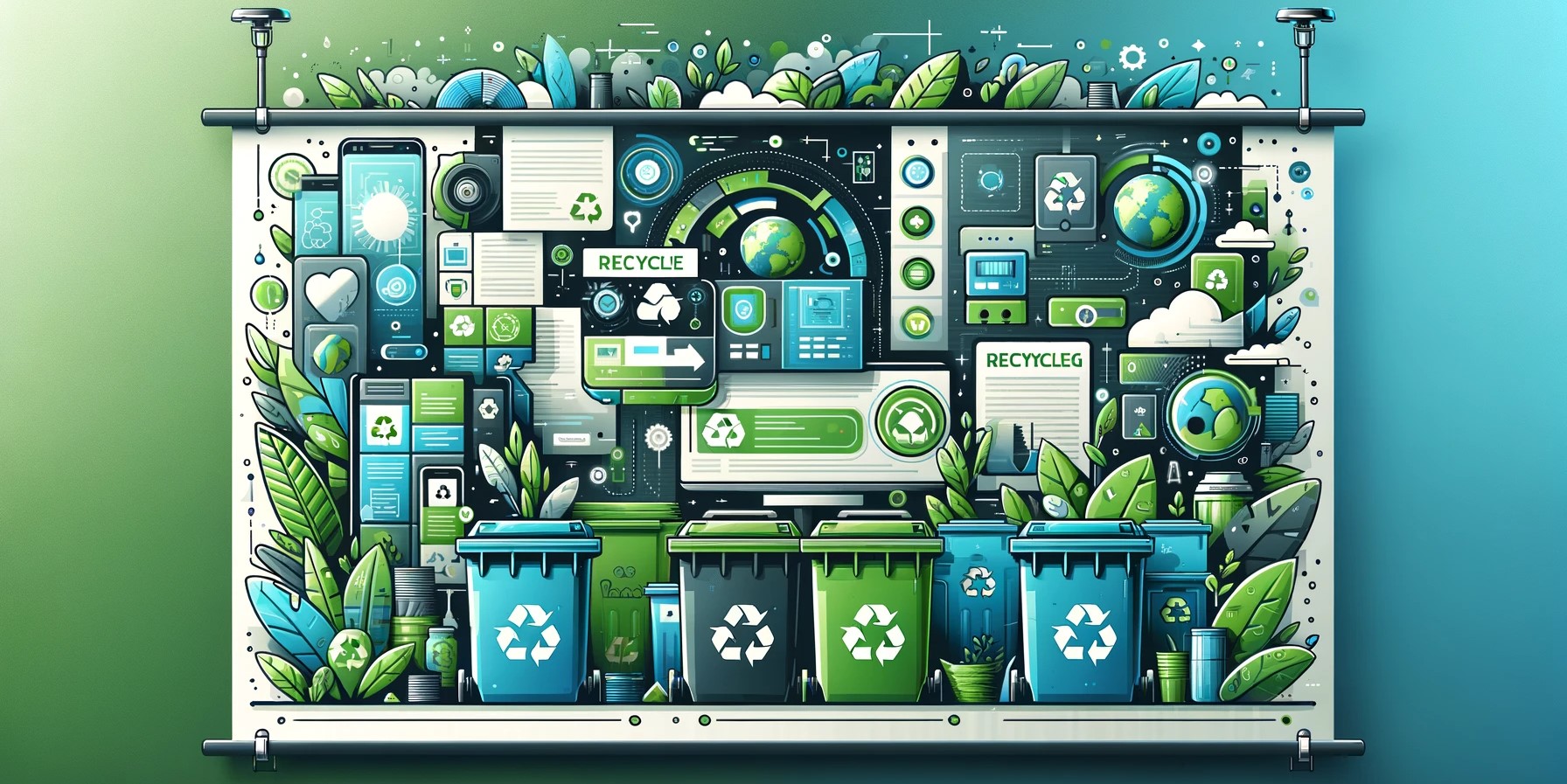Introducing Joe Gelber from Ai Can Recycling
Q: Can you introduce yourself and your startup?
A: I’m Joe Gelber, CEO and co-founder of Ai Can Recycling. Our mission is to revolutionize waste management. We’re developing a smart waste receptacle that leverages artificial intelligence to identify and sort waste items automatically. This technology aims to make recycling easier and more efficient for everyone, contributing to a cleaner and more sustainable environment.
Q: How did the concept for Ai Can Recycling come about?
A: The idea for Ai Can Recycling was born out of a combination of my academic journey and a deep-seated passion for sustainability. After completing my MBA, I knew I wanted to channel my efforts into making a significant impact within the realm of sustainability. The process began with identifying problems by engaging in conversations with various individuals, which led me to focus on recycling. Diving deeper into the challenges faced by recycling programs, I discovered the core issues that hinder effective recycling. This exploration and understanding of the underlying problems in recycling systems inspired the development of a smart waste receptacle as the most viable solution to address these challenges, marking the inception of Ai Can Recycling.
Why CleanTech Open?
Q: How did CleanTech Open become a part of your journey with Ai Can Recycling?
A: it was a deliberate choice informed by my sustained interest in sustainability. I had been keeping an eye on CleanTech Open for a couple of years, drawn to their focus on sustainability and the opportunities they offered through their accelerator program. This alignment with my own goals to make a difference in the sustainability sector made them an attractive prospect. The actual process of connecting with CleanTech Open began as I was applying for a U.S. grant aimed at fostering initiatives in sustainability. Although I didn’t secure the grant, the effort put into the application prepared me well for applying to the CleanTech Open. The application process for the grant covered much of the groundwork needed for the CleanTech Open application, facilitating a smoother transition to apply and engage with their program. Their goals and what they stand for resonated with what I was aiming to achieve with Ai Can Recycling, making it a fitting partnership to pursue.
How a Founder Gets In
Q: Could you detail the application process for CleanTech Open and your experience with it?
A: The application process for CleanTech Open, in my case, was relatively smooth, largely because I had the bulk of the necessary information already prepared from a previous grant application. The effort invested in the grant application proved beneficial, as it entailed a comprehensive examination of all aspects of my business, ensuring that every component was thoughtfully articulated. This preparatory work meant that completing the CleanTech Open application itself took only a day or two, given that most of the content was pre-written. The application process, while not as time-consuming as the grant, served a similar purpose in requiring a deep dive into the business plan. It was an opportunity to flesh out the startup idea comprehensively, even though not everything had to be perfected. The key was demonstrating sufficient research and a coherent plan that showed potential for success. This approach seems to be how CleanTech Open evaluates applicants’ readiness for the accelerator.
Q: What about the interview process?
A: The interview process for CleanTech Open was fairly straightforward, with just one interview required. It was less intense than what one might expect from other accelerators, particularly because CleanTech Open operates on a paid model rather than providing seed funding directly to participants. This structure may contribute to a less rigorous selection process compared to accelerators that invest directly in startups.
Q: Can you discuss the program’s cost and any financial support you received?
A: While there is a fee to participate in CleanTech Open, I didn’t bear the cost personally thanks to a grant from the state of New Jersey. This grant, available to New Jersey-incorporated businesses, covered the expenses associated with the accelerator, effectively making my participation free. This financial support underscores the valuable partnerships and resources available to startups at the state level, which can significantly offset the costs of accelerator programs like CleanTech Open.
Daily Life in the CleanTech Open Program
Q: What was your daily routine like once you became part of CleanTech Open, and what did the program entail?
A: Participating in the CleanTech Open program felt akin to being back in school, with a structured curriculum designed to guide us through various aspects of running a startup. The program was comprised of modules that included educational videos and articles covering a wide range of topics essential for startup development. The unique aspect of this learning approach was its emphasis on direct application of the content to our startup. This could involve conducting customer interviews, developing a business model, or other practical tasks that translated theoretical knowledge into actionable insights for our specific projects. This method of learning and application was instrumental in bridging the gap between understanding concepts and implementing them in the real world to drive our startup forward.
Standout Features of the CleanTech Open Program
Q: Reflecting on your experience, what aspects of the CleanTech Open program stood out as particularly beneficial?
A: The most impactful aspect of the CleanTech Open program, for me, was the network it provided. Being immersed in a community of like-minded individuals and startups focused on the CleanTech Open space was invaluable. This network not only offered support and advice but also facilitated connections that have been instrumental in advancing my journey with Ai Can Recycling. The opportunity to engage with others who share a commitment to sustainability helped broaden my perspective and opened doors to collaborations and resources that I might not have accessed otherwise.
Additionally, the program’s structure, which involved regular reviews and feedback on our work, played a crucial role in our development. Having seasoned professionals and peers critique our progress ensured that potential missteps were identified and addressed early on. This layer of oversight and guidance was not just about preventing mistakes but also about refining our approach and strategies as we progressed. Together, these elements—the supportive network and the structured feedback mechanism—were among the most beneficial aspects of participating in the CleanTech Open accelerator.
Areas for Improvement in the CleanTech Open Program
Q: Reflecting on your experience, what do you believe could be improved in the CleanTech Open program?
A: One area where the CleanTech Open program could improve is in providing more tailored guidance for startups at various stages of development, particularly for those of us in the pre-product phase. Our startup was at a very early stage, without a product yet, which made it challenging to follow a standard roadmap designed for more mature startups. While the program did offer options for next steps, none seemed to perfectly fit our unique position, which was slightly too early for transitioning to another accelerator or securing further funding. A more customized approach or roadmap that considers the unique challenges and opportunities faced by very early-stage startups would have been incredibly valuable. Such guidance could help outline potential paths forward, whether that involves additional accelerators, finding initial funding, or other avenues for development and growth.
Despite this, the accelerator followed a comprehensive playbook aimed at preparing startups to operate as viable businesses, and from this standpoint, it was successful. I gained a wealth of knowledge and insights throughout the program. However, additional support in planning the next phases of a startup journey, especially for those of us not yet full-time in our ventures, would enhance the program’s impact significantly, providing clearer direction on how to navigate the early stages of startup development.
Ai Can Recycling’s Progress Post-Accelerator
Q: Since completing the CleanTech Open accelerator, how has your startup evolved, and what impact has the accelerator had on your progress?
A: The CleanTech Open accelerator significantly contributed to refining our business model and validating the viability of our idea. The program’s emphasis on customer engagement and viability assessment was instrumental in propelling us forward. Currently, my co-founder Eric and I are balancing our commitment to Ai Can Recycling with our full-time jobs, which inherently limits the time we can dedicate to the startup each week. This dual commitment is our primary challenge rather than an issue directly related to the startup’s potential or the accelerator’s influence. We’re actively applying what we learned from the accelerator to further develop our smart waste receptacle concept. Our immediate focus is on completing the development of our prototype to a stage where it’s ready for customer validation. The next critical step involves engaging with potential customers to determine whether our solution meets a market need and if they would be willing to pay for it. This phase of customer validation is where we expect to see the real test of our product’s viability and market fit, building on the foundations laid during our time in CleanTech.
Ongoing Support from CleanTech Open and Future Milestones
Q: How has CleanTech Open continued to support your journey post-accelerator, and what are your upcoming milestones?
A: CleanTech Open remains actively involved in our post-accelerator journey by consistently sending us information on various opportunities. While I’ve noted a desire for a more tailored roadmap for our specific stage of development, the continuous flow of opportunities and resources they share is highly beneficial. This connection with the alumni network, and their effort to cater to startups at different stages, is something I greatly appreciate. It keeps us informed and engaged with potential avenues for growth and development.
As for our next milestones, our focus is on completing the development of our product to a point where it’s ready for customer validation. This involves building out the prototype based on the insights and learning from the accelerator and then approaching potential customers for feedback. The ongoing support from CleanTech Open, through their updates and opportunities, plays a vital role in keeping us connected to the broader CleanTech Open community and resources that could aid in reaching these milestones. Their involvement helps ensure we remain well-positioned to take advantage of opportunities that align with our growth objectives and stages of development.
Connecting with Investors through CleanTech Open
Q: Has CleanTech Open facilitated introductions to investors for your startup?
A: Yes, CleanTech Open has actively facilitated opportunities for us to connect with investors through their investor days. Being part of the Northeast Cohort, our focus was primarily in the northeastern United States, but we also had the chance to engage with the West Coast cohort. This dual engagement allowed us to meet and converse with investors from both coasts. Through these investor connects, we had meaningful interactions with a variety of investors on the East Coast and West Coast. This exposure was incredibly valuable, providing us with a broad perspective on investor interests and potential funding opportunities across the United States.
Advice for Prospective CleanTech Open Applicants
Q: What advice would you offer to those considering applying to CleanTech Open?
A: For anyone thinking about applying to CleanTech Open, my biggest piece of advice is to take the application process and the program’s requirements seriously. The tasks and questions posed by CleanTech Open are designed to prepare you for the real challenges of building and scaling a business, particularly in the sustainability sector. This isn’t just busywork; it’s fundamental to developing a strong foundation for your startup. The questions you’ll encounter during the application are similar to those asked by investors, focusing on essential aspects of your business that need clear and thoughtful answers. Understanding your business inside and out, as encouraged by the CleanTech Open application process, will not only better position you for acceptance into the accelerator but also set you on a path towards sustainable growth. It’s an opportunity to critically assess your business model, market fit, and the overall viability of your solution.
Additionally, once in an accelerator like CleanTech Open, embrace the emphasis on customer engagement. Speaking directly with customers was one of the most valuable aspects of our experience. It validated our assumptions, refined our product-market fit, and ensured that what we were building genuinely met the needs of our target market. Engaging with your potential customers early and often is critical to steering your startup in the right direction. So, view the application process as a stepping stone to this broader learning journey, take it seriously, and be ready to continuously learn and adapt based on feedback and customer insights.


